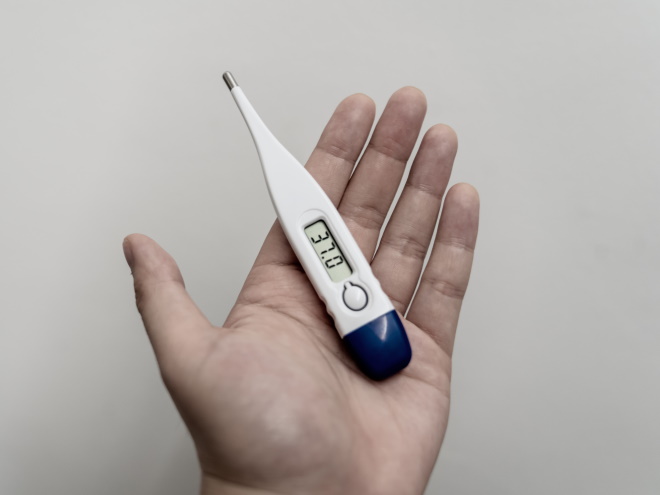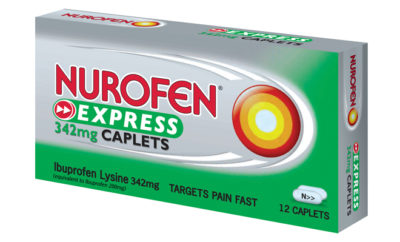
Health x Wellness
Is it safe to self medicate with paracetamol?
Many people choose to self medicate or are prescribed with symptomatic treatments such as paracetamol when faced with minor or mild symptoms. The article discusses the safety and efficacy of paracetamol, in the context of home-based recovery.
As Singapore returns to some degree of pre-pandemic normalcy, whether a return to the office, or the easing of social distancing on public transportation, or the relaxing of restrictions on patron numbers at F&B outlets, we worry that common ‘bugs’ such as the seasonal influenza and common colds will return with a vengeance.
A KK Women’s and Children’s Hospital Study found that “…the seasonal flu, was nearly absent for the second half of 2020…: and the study authors posit that this reduction in exposure for a prolonged period of time might mean that the Singapore population has reduced immunity.
Many people will suffer from mild symptoms such as cough, sore throat and fever, typical with seasonal influenza and common colds. Doctors tend to prescribe symptomatic medication such as paracetamol to reduce the fever.
There is also a preference to self medicate, and the health system – during the pandemic – reinforced this behaviour by suggesting people self-isolate at home for recovery to ease the burden on hospitals and treatment facilities.
With these factors at play, we discuss the safety and efficacy of taking paracetamol as part of a home-based recovery, or self medication preference with Dr Katrina Heng, Medical Doctor and Dr Raymond Ong, Senior Doctor with Doctor Anywhere.
the Active Age (AA): What are the common misconceptions of paracetamol?
Dr Katrina Heng (KH): In the context of COVID-19, paracetamol does not treat viral infections, instead it provides symptomatic relief from the viral infection, where it reduces fever and mild to moderate discomfort. The use of paracetamol is a commonly recommended medicine by health authorities, for example the World Health Organisation.
Dr Raymond Ong (RO): Some patients have also questioned if the use of paracetamol weakens the body’s immunity system. This is a misconception; the mechanism of action of paracetamol does not interfere with the activation of the immune system.
AA: Can you share some of the common uses for paracetamol?
KH: Paracetamol, also known as acetaminophen, is commonly used to relieve pain that presents as headaches, body aches, as well as reducing the body temperature during a fever.

In general, it is typically used to relieve mild or moderate pain experienced during headaches, toothaches or sprains and fever caused by illnesses such as the common cold and flu. Paracetamol is often recommended as a safe medicine for the treatment of pain, as it is accessible to most people and its side effects are less common.
AA: What are the differences in dosages (for adults and children) and how can one opt for the right amount?
KH: Always take paracetamol as instructed by a health professional or as directed on the product information leaflet. It is important to note that different brands have different dosage forms and strengths.
Generally, paracetamol is available in 500mg tablets or capsules. It is not advised to take more than two tablets each time. Each dose should also be taken with a gap of at least six hours in between, where the maximum daily dose should not exceed more than eight tablets over a 24 hour period. Do not take more than the recommended dose if it is not relieving your symptoms. Consult a doctor if symptoms worsen or persist.
The dosage is different when being administered in children, which is determined by their weight. Consult a doctor or pharmacist for the dosing regime and advise specific to your child.
RO: It is also possible for a patient to overdose on paracetamol. This can be intentional or non-intentional. With overdosages of medications of any kind, the body can, in the long run, develop a stronger reliance on the product and this can lead to more dependence on the medicine and possibly an addiction.
AA: Can you comment about the safety and efficacy of pain-relievers?
KH: Paracetamol is a medicine that has been available for over 70 years and is one of the most widely used medicine for pain. Paracetamol is known for its few side effects and can be used to reduce fever, headaches, body aches as well as general pain. It is safe for consumption; however, its use should be when necessary and as directed.
With every consumption, paracetamol can alleviate pain symptoms within 15 to 30 minutes and its effects can last up to six hours.
RO: When consuming paracetamol, always ensure that the patient refers to the product information or consult a medical professional for advice if unsure, as the dosages for each paracetamol product may vary from brand to brand.
The medicine should only be taken when needed and it is not required for it to be taken daily.
AA: Some parents believe in dosing with both paracetamol and other pain-relievers such as Ibuprofen concurrently, is this advised? Are there other medicines or foods that should be avoided when consuming paracetamol?
KH: As Ibuprofen does not contain the paracetamol ingredient, it is generally safe to consume paracetamol and ibuprofen. However, this practise should be strictly under recommended dosages. As both medications are for pain-relief and temperature control, it is best to allow time for one medication to act before taking the second medication. Often, one single type of medication should be sufficient.
Paracetamol can react unpredictably with other medications, which includes affecting how well either medicine works thereby causing the risk of increased side effects. For example, it may not be safe to take paracetamol with Warfarin or other similar medications that prevent blood clots.
There are little known reports of problems caused by taking paracetamol with specific foods or with alcohol consumption while taking paracetamol but it is good practice in general, to avoid mixing medicines with alcohol, according to safe recommendations.
It is also not recommended to be consume products that already contains paracetamol together with paracetamol. This avoids any risks from an overdose and possible unwanted side effects. Always consult a medical professional when in doubt.
RO: In Singapore, there are also a variety of paracetamol products available for purchase over the counter (such as Tylenol or Nurofen). Across the board, all these brands contain the active ingredient, paracetamol or acetaminophen.
Different brands may add on additional active ingredients in addition to paracetamol to provide relief in specific symptoms. For example, Pamabrom is added to paracetamol, to help to relieve bloating and water retention.
AA: What precautions should be taken when taking paracetamol?
KH: It is recommended that individuals take extra precautions if they are allergic to paracetamol or any of its by-products, suffer from liver or kidney disease, regular consumers of large quantities of alcohol, or are taking other medications that also contain paracetamol. Individuals who fall under any of the categories should consult a healthcare professional prior to taking paracetamol.
RO: As with other expired products, it is also strongly not recommended to consume expired medication – including paracetamol.
Photo by Kelly Sikkema on Unsplash









